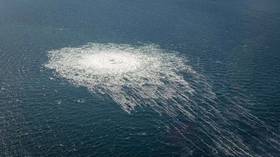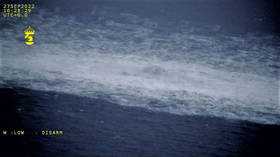Top Russian security official comments on Nord Stream blast report

Russian Security Council Secretary Nikolay Patrushev has said he has no information on who exactly sabotaged the Nord Stream pipelines last September. He was responding to a reporter on Wednesday when asked to comment on a new investigation by American journalist Seymour Hersh, who claimed the pipelines were targeted in a US-staged clandestine operation.
“If they [the Americans] report that, you can go and ask them. I don’t know who blew it up,” Patrushev claimed ahead of a meeting of security officials in the Kremlin.
The report was released by Hersh earlier in the day as the debut piece on his newly-set up blog on Substack. According to an anonymous source with direct knowledge on the matter, the attack on the pipelines was commissioned by the White House and performed by the CIA and US Navy divers.
The task force planted explosives at the pipelines last June, under the guise of a BALTOPS 22 NATO exercise, according to the report. The devices were detonated remotely on September 26 with a signal from a sonar buoy, which had been dropped into the area by a Norwegian reconnaissance plane.
The investigation’s conclusion has been strongly denied by multiple US officials. “This is utterly false and complete fiction,” Adrienne Watson, a spokesperson for the White House National Security Council, told the media in a statement. Similar messages have been transmitted by the CIA and State Department.
Shortly after the blasts, Moscow branded the incident a “terrorist attack.” While falling short of blaming the US for it, the Kremlin said at the time that Washington had benefited from the incident the most, as it greatly advanced efforts to sever Europe from Russia’s gas supply, substituting it with American LNG.













